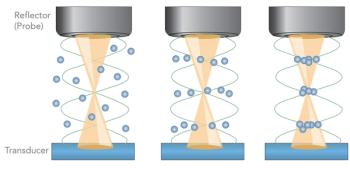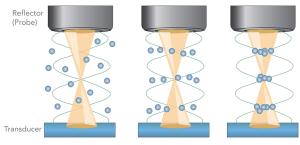Articles by Dieter Bingemann

Of the 78 million tons of plastic packaging manufactured every year, approximately one-third ends up in the ocean, the air, and most foods and beverages. To monitor the proliferation of these plastics, an ultrasonic capture method is demonstrated that produces a 1500-fold enhancement of Raman signals of microplastics in water.

Raman spectroscopy’s high analytical selectivity and insensitivity to water is well suited for process monitoring in biotechnology. Here we explore the fermentation of glucose, a common feedstock, with a commonly used microorganism, yeast. Applying multivariate tools, we can monitor the main reactants and products with high sensitivity: glucose, ethanol, and carbon dioxide.

In this application note, we evaluate sunscreen samples using spectroscopy. The same experimental setup can measure the SPF of fabrics and other materials, demonstrating how modular spectrometers can measure samples relevant to health.

Single use of plastic products contributes to a dramatic trash problem worldwide. Since the near-infrared spectrum of every polymer is unique, spectroscopy can be used to identify and sort a large variety of plastics with high specificity. This application note demonstrates the principle of plastic sorting using near-infrared spectroscopy.

In this technical note we discuss the causes and consequences of stray light, and provide suggestions for mitigating its effects in your experimental setup.

The combination of fast, modular spectrometers from Ocean Optics, with powerful chemometrics tools creates new opportunities for rapid, on-site testing of foods and other samples. From quick and inexpensive measurements in complex situations, to sample identification rivaling expert abilities or online quality control – the possibilities are endless.




